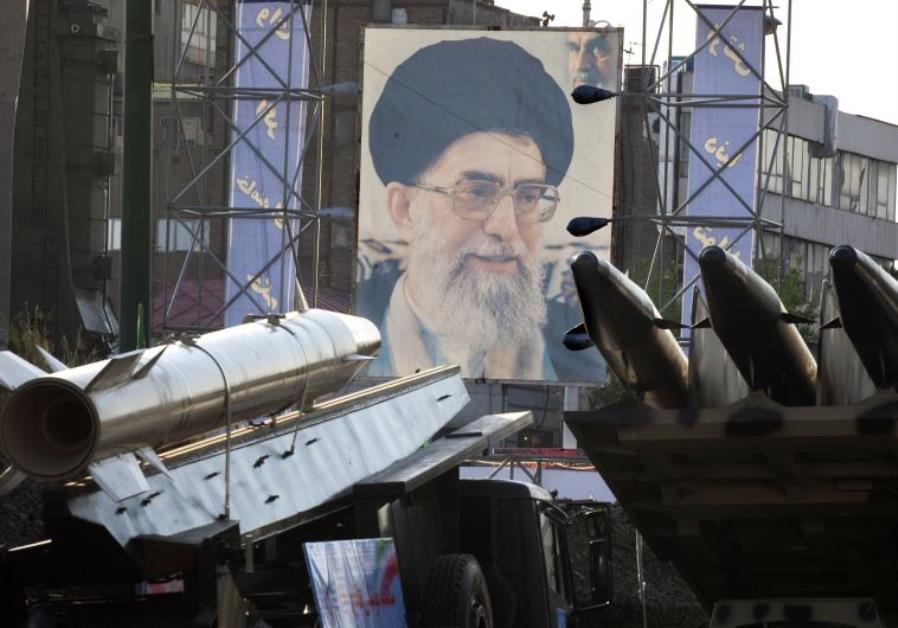Fans of Iran Nuke Deal Start to Acknowledge its Flaws/مؤيدو الاتفاق النووي الإيراني بدأوا يعترفون بأخطائه
Eli Lake/Bloomberg/September 17/17
The public line from the supporters of the Iran nuclear deal in the last two years has been clear. The Joint Comprehensive Plan of Action, as the core agreement is known, is wonderful. As Barack Obama said after its negotiations were completed in 2015: “There’s a reason why 99 percent of the world thinks that this is a good deal: It’s because it’s a good deal.”
All of this is reminiscent of what journalist David Samuels described in 2015 as an echo chamber of prominent arms-control experts, sympathetic journalists and Obama administration staffers deployed to sell the nuclear bargain to the public and Congress. Their party line is that the deal is the best possible way to limit Iran’s nuclear rise.
Nonetheless, many of these experts and former officials are also beginning to acknowledge that the nuclear deal they sold in 2015 is flawed. Next month, the Brookings Institution will host an off-the-record meeting of policy experts — some who favored the deal, some who oppose it — to discuss how to address the nuclear agreement’s flaws.
The State Department’s former special adviser for nonproliferation and arms control, Bob Einhorn, invited these nonproliferation experts to “one or more workshops to address the nuclear deal’s ‘sunset’ problem,” which he said was the risk that, “when key nuclear restrictions of the JCPOA expire, Iran will be free to build up its nuclear capabilities, especially its enrichment capacity, and drastically reduce the time it would need to produce enough fissile material for a nuclear weapon.”
This was a key objection voiced by Israel in 2015 when it publicly opposed Obama’s deal with Iran. Between 2025 and 2030, the agreement to limit Iran’s stocks of low-enriched uranium and the number of centrifuge cascades it can operate will expire, allowing Iran to erect an industrial-scale nuclear program if it chooses.
At the time, Israel’s objections were dismissed and derided by the White House. Obama called the deal’s critics warmongers.
Today, former Obama officials are singing a different song. Einhorn, who served from 2009 to 2013 in the Obama administration, told me: “Everyone recognizes that the deal is not ideal. I think President Obama would say the deal is not ideal.” He added: “There have been all kinds of ideas for how it can be strengthened. Strong supporters of the deal would acknowledge that. Let’s think of a strategy for how some of its shortcomings can be remedied.”
Iran has continued to test ballistic missiles and has warned it won’t allow inspections of military sites — highlighting ambiguities in the agreement. Einhorn’s quiet effort coincides with a new Trump administration strategy that looks to use the president’s de-certification of Iranian compliance with the deal as leverage to negotiate additional restrictions that address the sunset provisions.
So far, the echo chamber has opposed this strategy. The fear is that Trump’s de-certification, which would not automatically reinstate the crippling sanctions that were lifted as a condition of the deal, would potentially unravel the nuclear agreement and leave the international community with even less transparency about Iran’s nuclear program. Congress would have 60 days to debate whether to reimpose those sanctions.
Colin Kahl, who served as Vice President Joe Biden’s national security adviser in Obama’s second term, told me in an email this week that it was worthwhile to begin looking at the flaws of the agreement, but he opposed any strategy in which Trump would de-certify Iran’s compliance.
“There is no need to force a crisis over it at this very moment — as Trump and some deal opponents seem inclined to do — given that elements of the JCPOA don’t begin to sunset until 2026-2031,” he wrote. “And, as we engage in this conversation about possible arrangements to supplement the JCPOA, we should do so in a way that protects and stabilizes the current deal rather than threatening steps that would blow it up.” He added that any negotiations to further restrict Iran ought to include “possible positive inducements” for Iran.
*Bloomberg




















